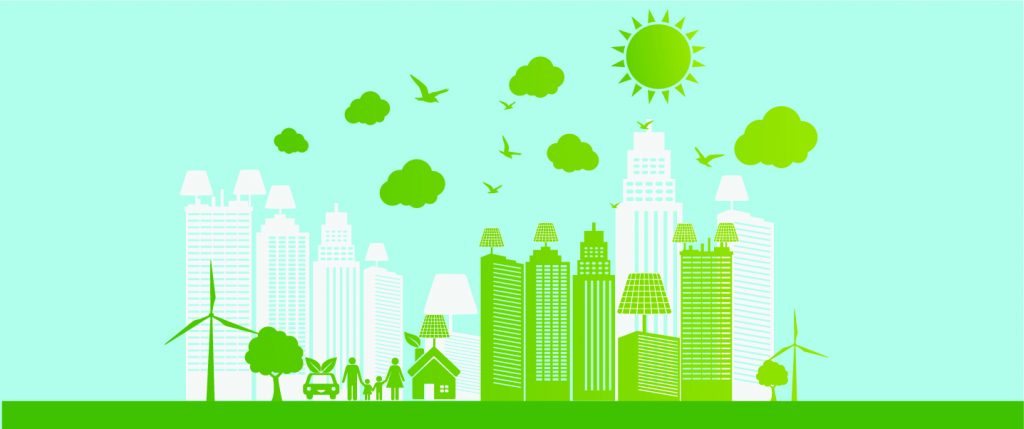Insights
CBAM and its implications for the Indian companies
October 9, 2023The transitional phase of the Carbon Border Adjustment Mechanism (“CBAM”) regulation began on 1 October, 2023 with the first reporting period for importers ending on January 31, 2024. All stakeholders, including importers, producers and regulators are expected to utilise this transition period as a learning opportunity. In order to improve the preparation for the mandatory period which begins in 2026, the preparatory exercise will enable the European Commission (“EC”) to gather meaningful data on embedded emissions. The required number of “CBAM certificates” corresponding to the Green House Gases (“GHG”) embedded in imported CBAM goods must be purchased and surrendered by the importers by that date.

What is CBAM and how does it work?
The ambitious goal of the European Union’s (“EU”) European Green Deal is to achieve climate neutrality by 2050 while reducing greenhouse gas emissions by 55% by 2030.[1] CBAM is a method for preventing carbon leakage, which occurs when businesses relocate their production outside their home country to save money on the costs of adhering to rigorous local environmental regulations or import less expensive foreign goods that were not subject to a carbon price in their nation of origin. CBAM, it is believed, has been issued in compliance with World Trade Organization (“WTO”) regulations and does not impose restrictions on free trade practises. However, to what extent this is true, will have to be tested in due course.
Read More+
CBAM will only be applicable to imports of cement, iron and steel, aluminium, fertilisers, power and hydrogen during its transition period. There will be no payments or adjustments required during this time for importers of the seven products that will initially be subject to this tax. They will only be required to declare the greenhouse gas emissions that are already present in their shipments. With time, the proposed tax will be extended to finished goods as well. All emissions, including indirect ones, which are released when power is generated and then used by a factory to produce any of the items on the carbon tax list, will be taken into consideration for calculating the tax.
Companies will have three options for reporting during the first year of implementation:
- full reporting according to the new methodology (EU method)
- reporting based on equivalent third country national systems
- reporting based on reference values
CBAM’s impact on Indian companies
The transition phase of CBAM has commenced and will continue until 31 December, 2025.Exporters from India are required to disclose full production and emission data throughout this period for goods moving into the EU. Exports from all developing nations, including India, will be impacted by CBAM. The new product tax will cause the price of the goods to soar, ultimately impacting exporters’ profitability. With €88 billion in goods trade in 2021, or 10.8% of all commerce with India, the EU is the third-largest trading partner.[2] India’s exports to the EU will be considerably impacted by CBAM’s implementation.
In contrast to the EU, India currently lacks defined standards for measuring GHG emissions while producing exported goods and does not have any form of carbon pricing framework. India is attempting to create its own framework for the carbon market. India has made a significant advancement in its quest for a sustainable and environmentally friendly future by implementing the Carbon Credit Trading Scheme (“CCTS”). India hopes to establish an attractive domestic carbon market through the CCTS, encouraging businesses and other organisations to reduce their carbon emissions by using a market-based strategy.
Exports of aluminium, iron and steel appear to be at maximum risk. Due to CBAM’s mandate that businesses track, calculate, report and verify emissions, compliance expenses will also rise. CBAM’s impact could be substantially higher in the years to come as it is anticipated that it will be extended to other industrial sectors and products as well. Steel and aluminium industries are making investments in on-site wind and solar power generation projects and signing power purchase agreements with independent renewable energy producers. The internal carbon cost for each tonne of carbon released is already being disclosed and reported by several notable businesses.
Price hikes for the targeted commodities in the EU will be a direct consequence of CBAM, at least in the early phases. In order to lower carbon intensity, Indian exporters will need to detect the carbon in their production process and in their supply chain. Whether or not an Indian company produces goods within the EU, CBAM is meant to ensure that Indian companies must initiate steps to reduce pollution if they hope to compete in the EU market.
India’s finance minister, Ms. Nirmala Sitharaman, has voiced her objections to CBAM, stating that she has informed European legislators that CBAM will essentially force India to bear the expense for greening its own steel production. She claimed that switching to greener businesses and investing in sustainable assets are ongoing processes in both the EU and India. She stressed that given this context, penalising India through CBAM is unfair.[3]
It is expected that other industrialised nations, like the United States of America and the United Kingdom, will take a similar stance and align themselves with the global reduction targets. It is crucial for Indian businesses to adapt to the new trends and develop internal time bound frameworks to reduce the risks associated with CBAM and other such carbon and environmental taxes.
Footnote
[1] https://commission.europa.eu/strategy-and-policy/priorities-2019-2024/european-green-deal_en
[2] https://policy.trade.ec.europa.eu/eu-trade-relationships-country-and-region/countries-and-regions/india_en
[3] https://www.business-standard.com/economy/interviews/eu-s-cbam-seeks-to-doubly-punish-india-says-fm-nirmala-sitharaman-123091700803_1.html
This article was originally published in Mondaq on 9 October 2023 Co-written by: Nawneet Vibhaw, Partner; Saurabh Sharma, Associate. Click here for original article
Read Less-
Contributed by: Nawneet Vibhaw, Partner; Saurabh Sharma, Associate
Disclaimer
This is intended for general information purposes only. The views and opinions expressed in this article are those of the author/authors and does not necessarily reflect the views of the firm.
